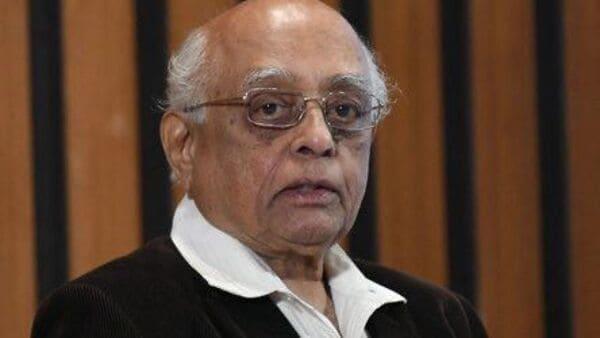
Who Was Rajagopala Chidambaram? PM Modi Mourns Veteran Nuclear Scientist: 10 Things To Know
In a post on X on Saturday, December 4, PM Modi wrote:“Deeply saddened by the demise of Dr Rajagopala Chidambaram. He was one of the key architects of India's nuclear programme and made ground-breaking contributions in strengthening India's scientific and strategic capabilities.”
“He will be remembered with gratitude by the whole nation and his efforts will inspire generations to come,” the prime minister said.
Rajagopala Chidambaram was born in 1936ABOUT RAJAGOPALA CHIDAMBARAM Rajagopala Chidambaram breathed was admitted to Jaslok Hospital in Mumbai. In a statement, the DAE said,“It is with profound sorrow that we announce the passing of Dr Rajagopala Chidambaram, an eminent physicist and one of India's most distinguished scientists, this morning (4 January 2025) at 3:20 AM.” “Dr Chidambaram's unparalleled contributions to India's scientific and strategic capabilities and his visionary leadership in science and technology will forever be remembered,” a statement issued by the DAE said. Rajagopala Chidambaram was born in 1936. He studied at Presidency College in Chennai. The veteran nuclear scientist later joined the Indian Institute of Science in Bengaluru, Karnataka. Rajagopala Chidambaram was the director of Bhabha Atomic Research Centre from 1990-1993. From 1993 to 2000, he was the Chairman of Atomic Energy Commission and secretary to the Government of India, DAE. He also served as chairman of the Board of Governors of the International Atomic Energy Agency (IAEA) (1994–1995). Chidambaram worked as Principal Scientific Adviser to the Government of India from 2001–2018. The DAE said, Chidambaram“played an integral role in the nation's first nuclear test in 1974, and led the Department of Atomic Energy team during the Pokhran-II nuclear tests in 1998. His contributions established India as a nuclear power on the global stage.” “As a world-class physicist, Dr. Chidambaram's research in high-pressure physics, crystallography, and materials science significantly advanced the scientific community's understanding of these fields. His pioneering work in these areas laid the foundation for modern materials science research in India,” it said. He championed initiatives in areas such as energy, healthcare and strategic self-reliance and steered numerous projects that significantly advanced India's science and technology landscape, it said. Rajagopala Chidambaram played a pivotal role in spearheading India's indigenous supercomputer development and envisioning the National Knowledge Network, which linked research and educational institutions nationwide. He was honoured with the Padma Shri in 1975 and the Padma Vibhushan in 1999. Rajagopala Chidambaram also received honorary doctorates from several universities and was a fellow of eminent Indian and international science academies. (With inputs from agency) Legal Disclaimer:
MENAFN provides the
information “as is” without warranty of any kind. We do not accept
any responsibility or liability for the accuracy, content, images,
videos, licenses, completeness, legality, or reliability of the information
contained in this article. If you have any complaints or copyright
issues related to this article, kindly contact the provider above.

















Comments
No comment